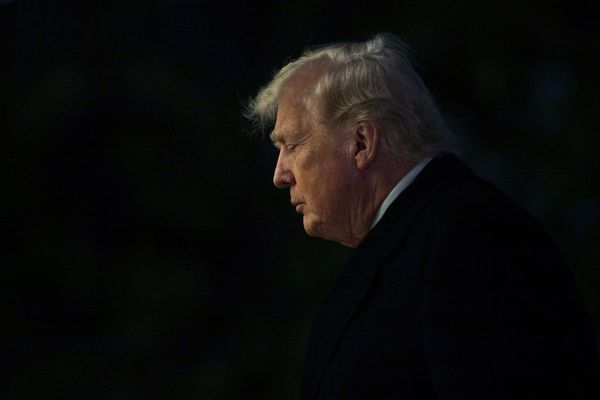
The International Court of Justice said on Thursday that it had dropped a case concerning the detention of two French nationals held in Iran since 2022 – at France's request. The lawyer for one of the families says the time has come for more urgent action to have them released.
France had filed a petition against Tehran at the ICJ in May over the detention of Cécile Kohler, who turned 41 on Thursday, and Jacques Paris, 72.
The pair were arrested in Iran in May 2022, accused of spying for Israel.
The petition said they were being held under a policy that targeted French nationals travelling in Iran "by accusing them of various offences relating to Iranian national security".
The French application accused Iran of "serious and repeated breaches" of its obligations under the Vienna Convention on Consular Relations.
Both countries are parties to the treaty, which regulates consular access.
However, on Thursday the Hague-based court said France had requested "the discontinuance of the proceedings" and that this "was not opposed by Iran".
The French government's decision has prompted confusion for the family of Kohler, who held rallies on Thursday evening to mark the fourth anniversary of her captivity.
Waiting for clarification
Kohler's sister, Noémie Kohler, told French news agency AFP that the family had contacted the French government for "clarification" on the decision to withdraw the request, but "would not try to draw any conclusions" without more information.
The families of the prisoners have described their situation as increasingly desperate.
On 23 June, Evin Prison – where Kohler and Paris were being held – was bombed in a strike Iran blames on Israel. Iranian officials said 79 people died.
Although unharmed, the couple were badly shaken and then moved to unknown locations.
In July, France told the ICJ it feared "irreparable harm" to Kohler and Paris, warning that new charges could expose them to the death penalty.
French couple face death penalty in Iran on spying and conspiracy charges
Prisoner exchange
Earlier this month, Iranian Foreign Minister Abbas Araghchi said in a television interview that a prisoner swap involving the French pair was nearing its "final stage" – with a proposed exchange for Mahdieh Esfandiari, an Iranian woman arrested in France in February over promoting terrorism on social media.
Iran has repeatedly requested her release, arguing that she was unjustly detained.
Kohler and Paris are among around 20 Europeans currently detained in Iran, including Lennart Monterlos, a 19-year-old Franco-German who was cycling from Europe to Asia and was arrested in the country in June, during the brief war between Iran and Israel.
French diplomat visits jailed couple in Iran after families demand proof of life
The French government has reiterated that securing the couple’s release remains a top priority.
On the sidelines of the United Nations General Assembly in New York, French President Emmanuel Macron met with Iranian President Massoud Pezeshkian on Wednesday.
During the meeting, they discussed the release of French citizens, who France considers "state hostages" held by Tehran.
"We have a solid perspective, so we're working on it. We'll have clarifications in the coming weeks," Macron told RFI, while remaining cautious. "But I don't want to be definitive here because unfortunately, it doesn't depend solely on us."
"Cécile Kohler, Jacques Paris and Lennart Monterlos, state hostages arbitrarily detained in inhumane conditions in Iran, must be released immediately," Macron reiterated via social media platform X (formerly Twitter).
Lack of transparency
However, the lawyer for the Kohler family, Chirinne Ardakani, said the reality is more complicated.
According to her, the last direct news from the couple came on 13 September.
The family has only had two brief instances of contact since June, "without the possibility of speaking freely," Ardakani told the Public Sénat website.
"We know they are alive, but neither the place where they are imprisoned nor their conditions of detention are communicated," she added.
She also criticised a lack of transparency from the French authorities. "I'm not saying that nothing is being done, but if measures exist, the families are not aware of them."
Ardakani insists it is time for "emergency measures and recognition of Iran as a criminal state".
(with AFP)







